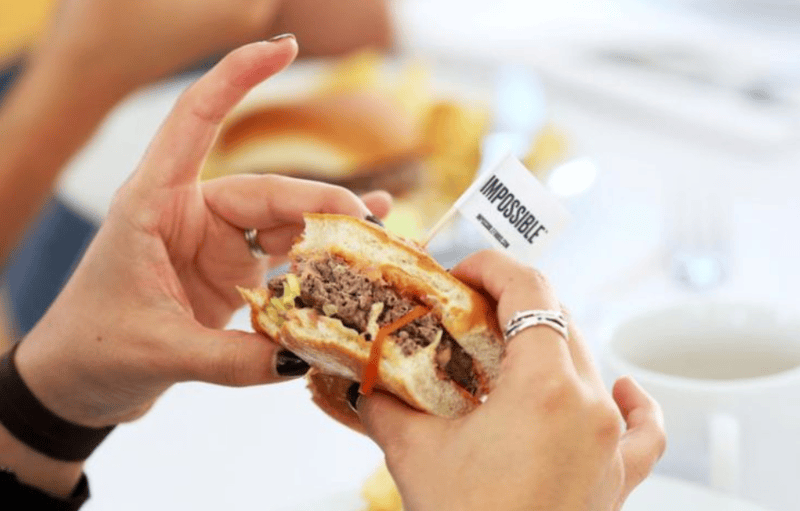Science of flavour: Why do we crave certain foods more than others?

There are several scientifically supported reasons for sudden food cravings, including stress, low blood sugar, dieting, menstrual cycles, and thirst.
While watching your favourite show at the office or in the comfort of your home, a sudden memory of crispy fries, sweet chocolate, or spicy wings from your popular local café comes to mind.
There are several scientifically supported reasons for sudden food cravings, including stress, low blood sugar, dieting, menstrual cycles, and thirst.
More To Read
- Chef Mohamud reveals blanching, not soaking, is the secret to perfect crispy fries
- Think beyond smoothies: 7 surprising ways to use your blender in the kitchen
- Chef Mohamud shares his recipe for crispy chicken wings you can make at home
- From chapati rolls to canjeero pizza: How families are reinventing snack time
- Why starting your day with pawpaw could be a game changer for your health
- How to use an air fryer: A beginner’s guide to crispy, healthy meals
According to research, food cravings are common in both males and females. Males are more likely to crave savoury foods, while females are more likely to crave high-fat, sweet foods.
A research study published by the Medical News attributes the brain regions being responsible for memory and pleasure to influencing food cravings.
“People can experience strong cravings, especially during pregnancy due to hormonal changes. Emotions can also contribute to cravings in cases such as eating for comfort, and it is possible to crave specific food because the body needs particular nutrients.
Like during pregnancy, a person may also experience pica, which is a craving for non-food items, such as chalk, dirt, coins, or ice.
There are two types of food cravings: selective and nonselective.
Selective cravings occur when someone desires a specific food, like a favourite chocolate, cake, burger, or a specific flavour of juice.
On the other hand, true hunger or even dehydration can trigger non-selective cravings, which involve a general urge to eat anything. In some cases, drinking water may help curb these cravings.
Studies also confirm that consuming a diet high in sugar or fat can disrupt the body's natural ability to regulate hunger and fullness, encouraging overeating.
This may lead to habitual craving (addiction) for those comfort foods.
What triggers it?
Food cravings are characterised by intense and persistent urges to consume specific foods. Food addiction goes a step further to involve both strong cravings and a loss of control over eating habits.
Additionally, other than stress, low sodium can trigger specific appetite signals because your body needs sodium.
Low blood sugar can trigger food cravings.
"When you go too long without eating or consume too many simple carbohydrates, your blood sugar drops, triggering your body to reach for starchy foods that are quick and easily digestible," Wincate Wangari, a chef and dietitian, told Eastleigh Voice on Wednesday.
Lastly, some research suggests that people may occasionally confuse thirst with hunger. This is because the same area of your brain that controls hunger controls thirst.
Notice when you see a billboard or a food advertisement, you immediately feel hungry. That is all part of marketing and advertising, which influence what you crave.
“Seeing food images can trigger hunger signals in the brain even when you are already full,” Wangari said.
She advised the best decision is to drink a glass of water when you are hungry or craving something; wait for 15 minutes to see if you will still be craving something.
She also said that reducing sugar and processed foods over time resets the taste preferences, which in turn reduces cravings.
“Food scientists create products with the perfect balance of sugar, fat, and salt to make them irresistible. This is why you will always crave certain chips, sodas, and snacks—never a whole meal like lentil soup with cabbage.”
Top Stories Today
- Taita Taveta launches policy to attract investors, boost local economy
- Tanzania nullifies Chadema appointments over quorum breach
- TSC budget shortfall leaves 20,000 intern teachers in limbo
- Victims of human-wildlife conflict urged to claim compensation
- Eastleigh hawkers count losses as rains disrupt business for third day
- Lobby groups urge activation of victim protection fund to protect children
- Rights group disputes Ruto’s claims on abducted protesters
- Deputy Governors seek constitutional changes to have clear mandates
- Funding shortfall leaves Somali women, children facing death
- City Hall to freeze accounts, auction properties over Sh50bn arrears
- Sh40.7bn budget shortfall threatens military recruitment, operations
- Kenya’s security at risk as regional instability grows, warns NIS boss
- Supreme Court Judge Ouko warns of eroding public trust due to case delays
- Palestine lifts ban on Al Jazeera's operations in Palestinian territories
- Kenya aims to quadruple tea exports to China by 2030
- KNEC announces July, August deadlines for 2025 CBC assessments
- Kagame urges Africa to ditch aid dependence after US cuts
- Tanzania arrests Chadema official travelling to Brussels conference
- Garissa residents want colonial-era boundary fuelling disputes scrapped
- Lake Basin Board official Ebel Ochieng detained for 23 days in probe into MP Were's murder












































